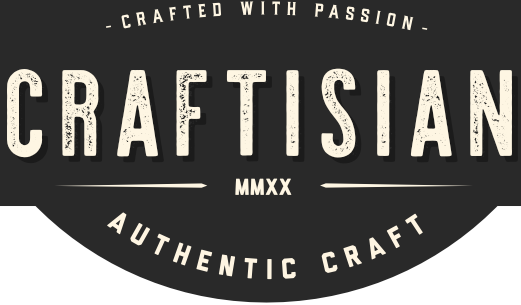Share your craft projects
Make new craft buddies
Ask craft questions
Blog your craft journey
I keep a jug of 30% H2O2 in the cabinet; its useful for all kinds of things, from killing fungi/bacteria to bleaching wood.
There's also a jug of 30% vinegar. Then there's the citric acid powder, oxalic acid powder (rust removal), potassium dichromate (oxidizing mahogany without staining holly inlays), butyl cellosolve (2-butoxyethanol) (great glass cleaner*), sodium benzoate (food grade, preservative for my pickles, 0.01%). Then all the usual solvents for finishing, and probably some other stuff.
BTW, after cleaning up the stinky tool, pour or spray it with acetone; it will dissolve the surface a bit and leave it factory smooth. Only a small amount is needed.
* make your own glass cleaner that does not streak: 1-2% butyl, 10-15% alcohol, and water. The butoxyethanol costs about $11 per pint and makes gallons of glass cleaner, at about $1 per. A national glass company replaced a large window in our home and gave me an aerosol can of cleaner that worked better than anything I had ever used. Went back to get more and they wanted $22 a ca; no go. Took the can to work and handed it to the head of our analytical lab and told him to tell me the ingredients - that what it was. So, for the last 20 years, I've been making glass cleaner for the neighbors. The only drawback is a little odor; the commercial stuff covers that with a reodorant (perfume), which I suspect may be what causes the streaking, perfumes being oily stuff.
There's also a jug of 30% vinegar. Then there's the citric acid powder, oxalic acid powder (rust removal), potassium dichromate (oxidizing mahogany without staining holly inlays), butyl cellosolve (2-butoxyethanol) (great glass cleaner*), sodium benzoate (food grade, preservative for my pickles, 0.01%). Then all the usual solvents for finishing, and probably some other stuff.
BTW, after cleaning up the stinky tool, pour or spray it with acetone; it will dissolve the surface a bit and leave it factory smooth. Only a small amount is needed.
* make your own glass cleaner that does not streak: 1-2% butyl, 10-15% alcohol, and water. The butoxyethanol costs about $11 per pint and makes gallons of glass cleaner, at about $1 per. A national glass company replaced a large window in our home and gave me an aerosol can of cleaner that worked better than anything I had ever used. Went back to get more and they wanted $22 a ca; no go. Took the can to work and handed it to the head of our analytical lab and told him to tell me the ingredients - that what it was. So, for the last 20 years, I've been making glass cleaner for the neighbors. The only drawback is a little odor; the commercial stuff covers that with a reodorant (perfume), which I suspect may be what causes the streaking, perfumes being oily stuff.
Carey Mitchell









